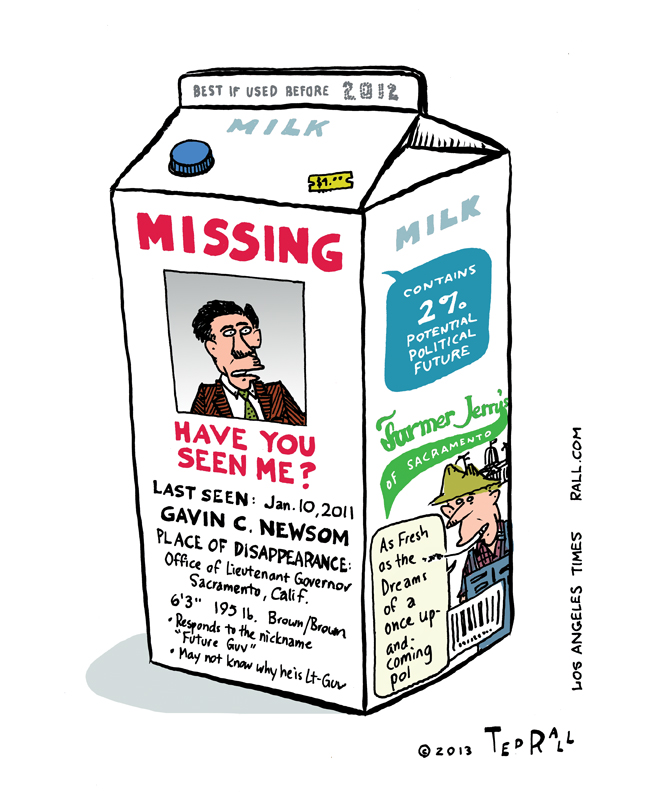Americans are suffering from all sorts of serious problems. They don’t earn enough, and their expenses are too high. They can’t afford to send their children to college or pay for healthcare. America is also responsible for problems overseas. For example, it is currently enabling genocide in Gaza. Democrats don’t have anything to say about any of these issues. However, when Texas Republicans unveil a sleazy scheme to abuse redistricting in order to gerrymander Congress in their favor by a few seats, leading Democrats like Gavin Newsom leap into action and declare war. Priorities.
TMI Show Ep 152: “Exclusive: Inside the Sordid World of Tom Girardi”
LIVE 10 AM Eastern time, Streaming Anytime:
It’s a special behind-the-scenes episode of “The TMI Show with Ted Rall and Manila Chan,” diving into the sizzling scandal of celebrity lawyer Tom Girardi! Sentenced to 7 years in prison for embezzling $15 million from clients, Girardi’s fall from grace is wild. Once a legal titan who won millions in the Erin Brockovich case and married to “Real Housewives” star Erika Jayne, he’s also at the heart of a twisted L.A. conspiracy. Ted Rall, who had Girardi as his first lawyer against the LA Times, spills the tea on this sordid tale involving the LA Times, LAPD, former LA Times publisher Austin Beutner, and California Governor Gavin Newsom. From Girardi’s lavish lifestyle funded by stolen client money to allegations of political influence and media cover-ups, this story’s got it all—betrayal, fraud, and power plays. Find out how Girardi’s high-powered firm was a front for bigger schemes—and how it could affect the 2028 presidential race? How deep does this web of corruption go? Tune in for a no-holds-barred exposé that’ll leave you shook, exclusively on The TMI Show!
Plus:
- Boulder Update: Family of Boulder attack suspect faces expedited deportation amid controversy over legality and fairness.
- Trump’s BBB: Elon Musk slams Trump’s tax and immigration bill as a “disgusting abomination” threatening massive debt.
- Kerch Bridge Attack: Ukraine’s SBU claims a new underwater strike on Russia’s Kerch Bridge, escalating tensions.
- Dutch Government Collapse: Geert Wilders’ exit from coalition over immigration disputes triggers a political crisis.
Clash of the Democratic Trump Wannabes
DeProgram: “Trump’s 100 Days & 2028 Dems”
LIVE 2 pm Eastern Time & Streaming On Demand Afterward:
Dive into “DeProgram with Ted Rall and John Kiriakou” as they unpack the high-stakes developments of Donald Trump’s first 100 days. With incisive clarity, they analyze today’s newly released economic figures, decoding their implications for America’s trajectory—growth or decline?
The hosts explore the heating 2028 Democratic presidential race, where Commerce Secretary Gina Raimondo just announced her candidacy, joining potential contenders like Gavin Newsom, Gretchen Whitmer, Josh Shapiro, and Pete Buttigieg in a fierce battle to shape the party’s future.
The episode intensifies with breaking news on Trump’s deportation policies: the president’s newly-admitted defiance in refusing to retrieve Kilmar Armando Abrego Garcia, a Maryland man wrongfully deported to El Salvador’s brutal CECOT prison, despite court orders, ignites a constitutional crisis. Meanwhile, a federal judge’s ruling to free Mohsen Mahdawi, a Columbia University student activist detained by ICE over pro-Palestinian protests, raises critical questions about free speech and government overreach.
Rall and Kiriakou deliver unflinching commentary, exposing the human and political toll of these unfolding dramas. From economic fault lines to immigration battles, this episode is essential listening for those craving truth amid the chaos. Expect bold perspectives and a challenge to question the status quo in this 60-minute deep dive. Catch DeProgram now on all major podcast platforms—don’t miss this electrifying discussion!
The Final Countdown – 11/17/23 – Can Newsom Replace Biden for the Democratic Ticket?
On this episode of The Final Countdown, hosts Angie Wong and Ted Rall discussed a wide range of topics from around the globe, including the potential for a Gavin Newsom democratic ticket.
From Pot to Jaywalking, Pay Compensation to Those Hurt by Repealed Laws
Whether it’s a soaring literary classic like Les Misérables or generic Hollywood product like The Butterfly Effect, I’m drawn to stories in which a minor event triggers a series of unforeseen dramatic events. As Springsteen wrote and Dave Edmunds sang, from small things big things one day come.
A real-life example transpired three weeks after the 9/11 attacks, when I was falsely accused of jaywalking — a misdemeanor at the time — by an LAPD officer who roughed me up and handcuffed me to boot. For 14 years, nothing happened as the result of that arrest on October 3, 2001. In the summer of 2015, without warning, getting busted for jaywalking blew up my life.
Tiny problems can wreak havoc. Like the O-ring. Hell, I got expelled from college over a wart.
The jaywalking thing cost me my job as the staff cartoonist at the Los Angeles Times, damaged my reputation to the point where I was nearly blacklisted from journalism and cost me friends and colleagues. It made me doubt the ability or willingness of journalism, the love of my life, to do the right thing. It convinced me beyond a reasonable doubt that the justice system is hopelessly corrupt. I drank too much. Who knows—the weight I gained may eventually kill me.
I am grateful for every day that passes when I don’t think about jaywalking or the LA Frigging Times. Unfortunately there was no way to distract myself this week. California governor Gavin Newsom signed a new law decriminalizing jaywalking. As of the first of the coming year the Freedom to Walk Act means you’ll be allowed to cross a street in the Golden State—safely! look both ways before crossing, like mom taught you—without fear of being fined, handcuffed, beaten, arrested or even killed by a lunatic cop unless “a reasonably careful person would realize there is an immediate danger of collision with a moving vehicle or other device moving exclusively by human power.” (The legislation is silent on devices powered by other animals or plants.)
Jaywalking tickets are big business in California. In Los Angeles alone, the LAPD raised $6.2 million in revenues by fining 31,712 accused jaywalkers between 2010 and 2020. Blacks were targeted more than three times their presence in the population.
Several well-meaning readers contacted me to inform me of California’s new law, which I support wholeheartedly except for an all-too-common omission: it’s not retroactive. Those who have suffered fines, imprisonment and other punishments under a law that is subsequently repealed ought to be made whole. If slaves were emancipated by the conclusion of the Civil War in 1865, escaped slaves and those who helped them who were punished for their “crimes” should receive apologies and restitution by 1866. Merely erasing a conviction from your criminal record, as some states that have legalized marijuana have done, isn’t enough.
Anyone who is charged and convicted for a crime that is no longer a crime ought to be refunded their fines and attorneys’ fees, plus compound interest charged at the highest credit card rate. Anyone who spent time in jail or prison for an offense that is no longer viewed as an offense under the law should be generously compensated by the state or city responsible for their conviction.
Even if California were to come to its senses and pay millions of dollars in penance to everyone who suffered under bigoted jaywalking laws that were originally conceived by automobile companies as a way to discourage walking and sell more cars, there still wouldn’t be any way to undo all the weird side effects of what we now recognize as an obsolete form of oppression.
For poor Californians, the $196 jaywalking fine was devastating. Under our vicious capitalist system, there can be no doubt that some people failed to make rent and even lost their homes after being targeted by police enforcing this idiotic statute.
As a solvent, able-bodied, white, cis male, Ivy League graduate, paying the citation was no big deal. But even for me, it was a train wreck.
Upset about being falsely accused — I wasn’t jaywalking, the cop made it up — and mistreated, I filed an internal affairs complaint against the officer back in 2001. Citizens are ignored in such cases 96% of the time, and I was no exception. By 2015 I had been working for the LA Times for six years. But I didn’t know two things. First, a thin-skinned police chief was furious every time I drew a cartoon criticizing the police. Second, in 2014, the LAPD union bought an interest in the parent company of the LA Times and formed an obscene corrupt alliance with the paper’s publisher, multibillionaire Austin Beutner.
In 2015 Beutner and Chief Charlie Beck held a secret meeting where, clearly needing more important things to do to fill their time—they should try golf, the evil rich love it—they conspired to ruin me. Beck dredged up my old IA complaint file, which contained an audio recording the cop had made of my jaywalking arrest: basically six minutes of wind and street noise. At Beutner’s direction the Times wrote a piece that argued the cop was kind and polite, and that my description of the encounter in a Times blog piece was false, so I must be fired for crimes against journalism.
Fox News, Breitbart and the rest of the right-wing mediasphere had a field day dragging the corpse of my reputation across the Internet.
Ultimately, I was vindicated. The doctoring of the tape, the Beck-Beutner conspiracy, the fact that I’d told the truth about what happened in 2001 while the LAPD Times had lied all came out in the media and through the course of a lengthy court battle. There’s no telling how much work I’m not getting as a result of the Times’ defamation campaign, though I am working.
The experience changed me, mostly for the worse.
Nothing could make me, or the other people hurt by California’s repealed jaywalking law, whole again. But the state should try.
Every state should try, every time it repeals a bad law.
(Ted Rall (Twitter: @tedrall), the political cartoonist, columnist and graphic novelist, co-hosts the left-vs-right DMZ America podcast with fellow cartoonist Scott Stantis. You can support Ted’s hard-hitting political cartoons and columns and see his work first by sponsoring his work on Patreon.)
LOS ANGELES TIMES CARTOON: Dianne Feinstein’s Would-Be Successors Gear Up for 2018
Many Californians, and not just Republicans, would like to see fresh faces representing the state in the United States Senate. At ages 81 and 73 respectively, Dianne Feinstein and Barbara Boxer are not only some of the most senior senior citizens holding representative office in Washington, they appear somewhat incongruous given California’s culture of youth worship.
Boxer’s current term expires in 2016 and Feinstein in 2018. Polls that show Californians interested in replacing them with someone else may not mean much – after all, in many cases that would mean convincing lifelong Democrats to vote Republican – but the possibility that one or both groundbreaking women legislators might retire an array of boldface state political figures eyeing the possibility of a run in two to four years.
The Times’ Cathleen Decker reports:
By the middle of October, according to the last full report available, Lt. Gov. Gavin Newsom had spent more than $544,000 on his campaign and had almost $3 million in the bank. And he was sending out none-too-subtle fundraising appeals with lines such as: “For us, it’s all about the day after Election Day, the day after that, and all the days ahead when we’ll make big decisions about California’s future.” Since the lieutenant governorship is a vast, responsibility-less black hole, those big decisions presumably center on Newsom’s future.
Atty. Gen. Kamala Harris, meanwhile, had spent more than $2.2 million by mid-October, with almost $2.4 million in the bank. And she was blanketing the state with let-me-introduce-myself ads noting that she “aggressively prosecuted predators who victimize the vulnerable … cracked down on sex trafficking of women and children … took on the transnational gangs … prosecuted sexual assaults and enforced laws requiring equal pay for equal work.” No pushover, in other words.
Although I am in part persuaded by the seniority and experience argument in favor of returning Boxer and Feinstein to Washington – their tenure has earned them positions on key committees that allow them to leverage more power to the Golden State – I tilt more toward the belief that the term “career politician” ought to be considered an oxymoron, and the public service are not to be a career, but rather a chance to briefly give back to society before resuming private life.
Power has a tendency to become so entrenched that it is often hard for people who hold it to relate to the concerns of ordinary people – i.e. their constituents. In Feinstein’s case, for example, it was telling that after years of running interference for the national security agency and its massive infrastructure of illegal surveillance against the American people revealed by Edward Snowden – as chairman of the Senate intelligence committee, which is actually charged with policing the NSA, not justifying its actions – Feinstein only took issue with spooks when they tapped into her own investigative committee’s computers. Plainly she had spent too much time with people like director of national intelligence James Clapper, who famously lied under oath by saying that the NSA didn’t “wittingly” collect data on millions of Americans, to keep her ear to the ground.
I don’t think that the two senators are too old to serve effectively. I think they’ve been in office too long to serve us. Retiring soon in order to open up the field to a younger generation of public servants would be a classy move.
LOS ANGELES TIMES CARTOON: Missing Gavin
I draw cartoons for The Los Angeles Times about issues related to California and the Southland (metro Los Angeles).
This week: Once an up-and-comer, former San Francisco mayor Gavin Newsom has been reduced to obscurity in his position as Lieutenant Governor. Governor Jerry Brown, once an ally, is content to leave him that way.




